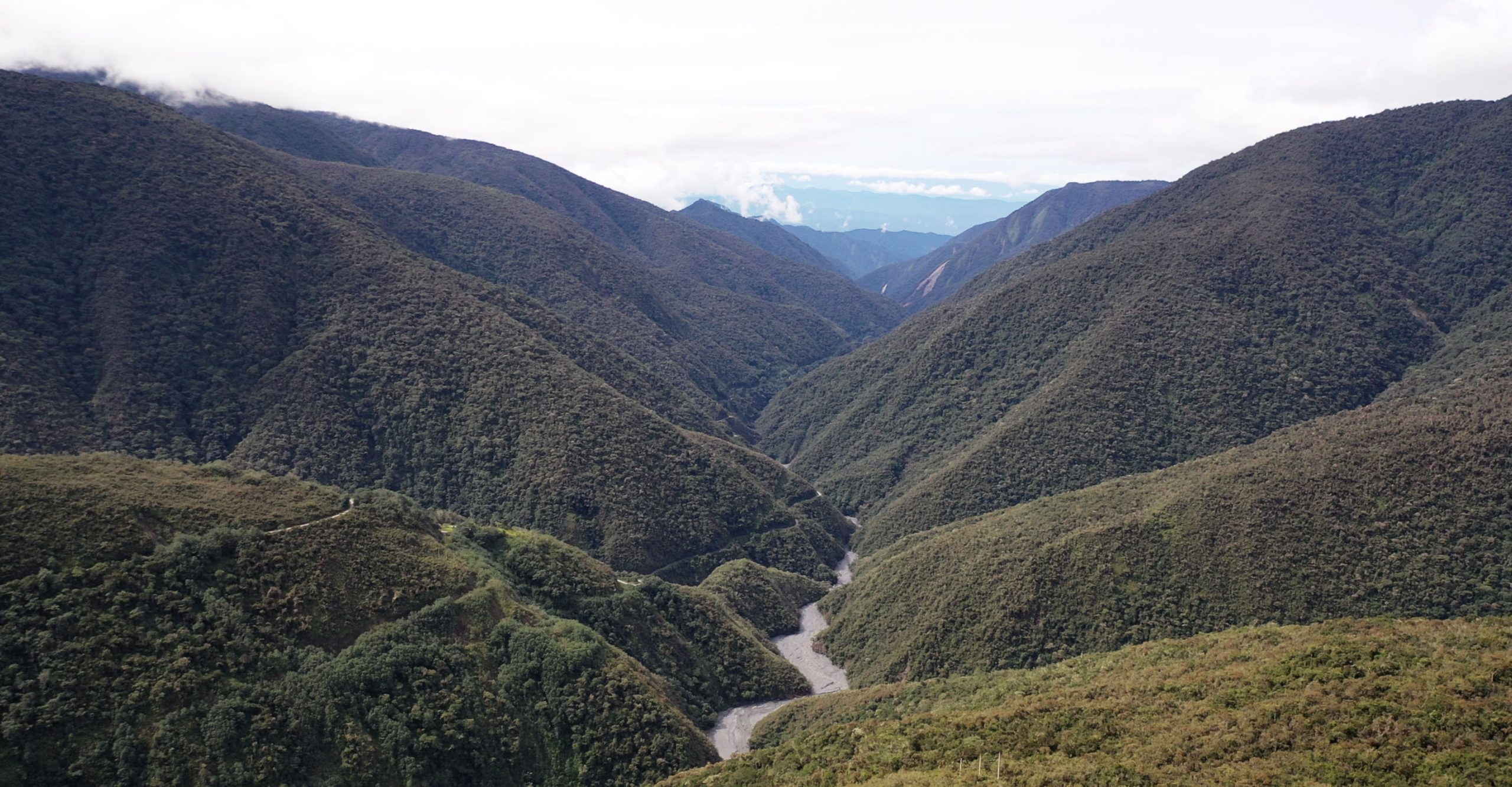Tropical forests are struggling to keep pace with climate change
WFU researchers collaborate with University of Oxford on groundbreaking study

Tropical rainforests play a vital role in global climate regulation and biodiversity conservation. Wake Forest University researchers who monitor a network of forest plots stretching from the slopes of the Andes to the lowlands along the Amazon River in Southern Peru have contributed to a major new study published today in Science.
Led by Jesús Aguirre-Gutiérrez from the University of Oxford’s Environmental Change Institute (ECI), the study reveals forests across the Americas are not adapting quickly enough to keep pace with climate change.
The project involved more than 100 scientists and local partners analyzing data from 415 permanent forest plots from Mexico to southern Brazil. By examining the traits of more than 250,000 trees, the team assessed how different species are responding to shifting temperatures and rainfall patterns.
“Our lab has been looking at climate change in tropical plant communities for a long time,” said Miles Silman, Andrew Sabin Presidential Chair of Conservation Biology at Wake Forest and a co-author. “In this study, we were part of a large group of scientists working to understand the changes in forest communities as measured through shifts in their functional traits – the collective pool of traits that plants use to interact with the environment.”
“The superpower of tropical forests is that for the past 60 million years, trees could rely on animals to pollinate them and move their seeds.”
Miles Silman
Wake Forest’s Andrew Sabin Presidential Chair of Conservation Biology
Wake Forest established permanent forest plots in Peru more than 20 years ago through the Andes Biodiversity and Ecosystems Research Group (ABERG).
“Our plot network is one of the most extensive elevational transects worldwide, allowing us to monitor forest diversity, composition and responses to global change over the past two decades,” said William Farfan-Rios, biodiversity fellow with the Andrew Sabin Center for Environment and Sustainability at Wake Forest University who is also a co-author of the research.
Elevation affects how quickly trees adapt.
“The findings show that the lowland Amazon forest is not changing rapidly enough to keep up with climate change,” Farfan-Rios said.
Key Findings:
- Forest adaptation is lagging: While climate change is altering temperature and precipitation patterns, tree communities are changing too slowly to remain in equilibrium with their environment.
- Survival strategies vary: Some tree species thrive while others struggle. Traits such as deciduousness, wood density, leaf thickness, and drought tolerance influence a tree’s ability to survive in a changing climate.
- Elevation matters: Mountainous forests show more rapid adaptation than lowland forests, likely due to greater climate variability.
- Recruitment differences: Younger trees (recruits) show the most noticeable shifts in traits, yet the overall forest composition remains largely unchanged.
- Future risks: By 2100, temperatures in the region could rise by up to 4°C, with rainfall decreasing by as much as 20%. This could push tropical forests further out of balance, making them more vulnerable to extreme climate events.
Lead author Aguirre-Gutiérrez explained: “Tropical forests are among the most diverse ecosystems on Earth, yet their ability to adapt to climate change is limited. Understanding which traits help trees survive can guide conservation efforts and policy decisions. Given the changes in climate we have observed over the last 40 to 50 years, you might think there have also been lots of changes in the tree communities in tropical rainforests. But some of these changes are too small and too slow to actually adapt to the observed changes in climate. By looking at individual trees from different communities, we found some have suffered due to climate shifts, while others have thrived. We can study the characteristics, also known as ‘tree traits,’ of those that have survived, as well as new individuals joining the communities and those that have died, to understand what makes them react differently to a changing climate.”
“If we know what species of trees are doing better or worse, and what set of traits they have, then we know what they can withstand,” he said. “It will help inform what conservation actions should be encouraged and where funding should be allocated.”
The study highlights the urgent need for further research and conservation strategies to support the resilience of these critical ecosystems.
“The superpower of tropical forests is that for the past 60 million years, trees could rely on animals to pollinate them and move their seeds,” Silman said. “We are rapidly removing the animals that disperse the plants and make all the other ecological interactions happen. The loss of fauna and the loss of large tracts of habitat are kryptonite for tropical forests.”
This has been adapted from a news release produced by the University of Oxford’s Environmental Change Institute. Read the full news release.
Categories: Environment & Sustainability, Research & Discovery
Media Contact
Cheryl Walker
media@wfu.edu
336.758.5237



